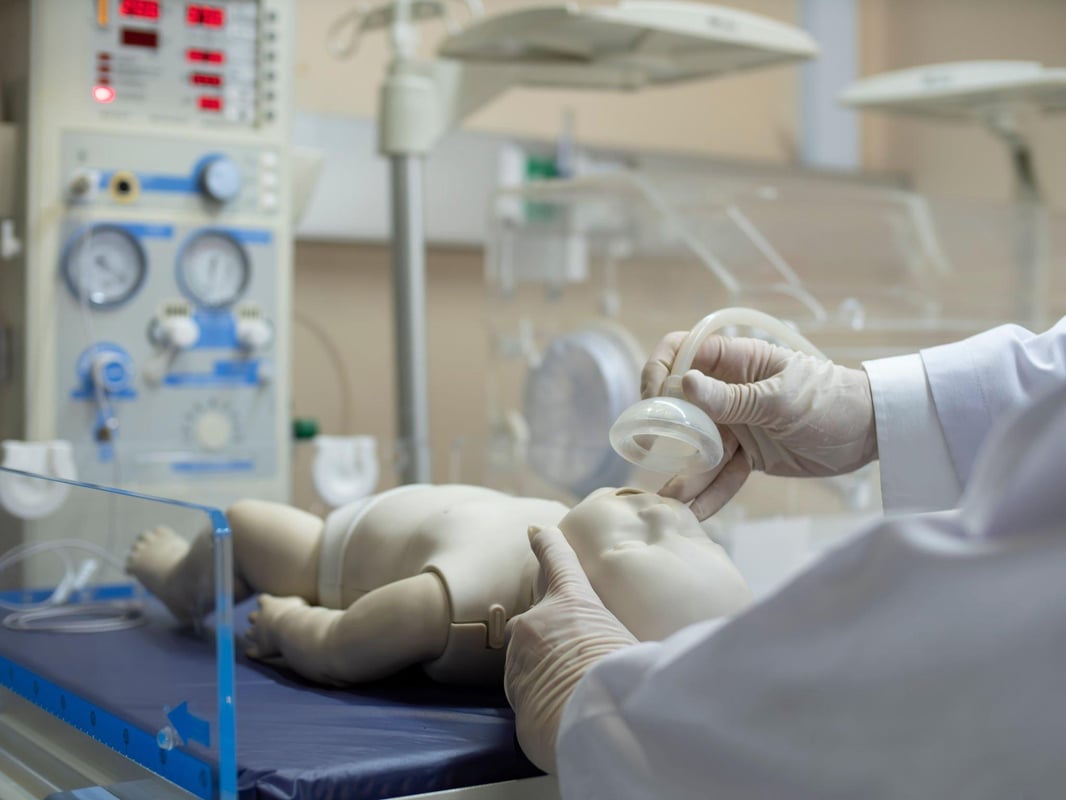
Financial aid (may be available)

Financial aid (may be available)

Financial aid (may be available)

Financial aid (may be available)
$276 total
$2,075 total
$270 total
$410 total
$365 total
$150 total
No cost info
$285 total
$150 total
No cost info
The healthcare field is expansive and provides a multitude of opportunities for individuals seeking a rewarding and fulfilling career. One such opportunity is to become a Pediatric Advanced Life Support (PALS) provider. This blog post will help you understand what PALS is, the training requirements, what to look for in a class, and the certification process. We will also provide guidance on how to find related jobs and other classes you can take after becoming a PALS provider.

Pediatric Advanced Life Support is a program designed to improve outcomes for critically ill or injured infants and children by teaching healthcare providers the skills and knowledge needed to effectively recognize and manage a range of pediatric emergencies. The PALS certification equips healthcare professionals to quickly and accurately identify and treat conditions such as cardiac arrest, respiratory distress, shock, and trauma in pediatric patients.
Before enrolling in a PALS class, it's important to understand the training requirements. PALS training typically includes:
Prior certification in Basic Life Support (BLS): This serves as the foundation for the advanced skills taught in PALS and is often a prerequisite for enrollment.
Completion of a PALS course: This course covers a range of topics, such as airway management, pediatric assessments, and pharmacology.
Passing a skills assessment: This practical component ensures that students can effectively apply the knowledge and skills they've learned in real-life scenarios.
When choosing a PALS class, consider the following factors:
Accreditation: Ensure the course is accredited by a reputable body, such as the American Heart Association (AHA). Accreditation ensures the course meets the necessary standards and that your certification will be widely recognized.
Level of instruction: The course should provide comprehensive instruction in pediatric emergency care, including both theoretical knowledge and practical skills.
Qualified instructors: The instructors should have relevant experience and qualifications in pediatric emergency care.
A typical PALS class consists of lectures, group discussions, and hands-on practice. These classes often include:
Lectures: These provide the theoretical knowledge required for PALS, covering topics such as pediatric assessment, effective resuscitation techniques, and more.
Group discussions: These provide opportunities for students to share their experiences and learn from each other.
Hands-on practice: This allows students to apply what they've learned in simulated scenarios.
The PALS certification process generally includes the following steps:
Completion of a PALS course: This is the first step towards obtaining PALS certification. Upon successful completion, students are usually required to pass a written exam.
Passing a skills assessment: After passing the written exam, students must demonstrate their practical skills in a simulated scenario.
Receiving certification: After passing all exams and assessments, students receive their PALS certification, which is usually valid for two years.
After obtaining PALS certification, you can explore job opportunities in various healthcare settings, such as hospitals, clinics, and emergency medical services. Some positions that may require or benefit from PALS certification include:
Registered Nurse
Respiratory Therapist
Radiology Technician
EMT
Paramedic
Once you have your PALS certification, there are several related courses you can take to further enhance your skills and knowledge, including:
Advanced Cardiac Life Support (ACLS): This course builds on the skills learned in PALS and BLS, focusing on the treatment of adult patients.
Neonatal Resuscitation Program (NRP): This course focuses on the resuscitation of newborns and is beneficial for healthcare professionals working in neonatal care.
When planning your PALS training, consider the following:
Refresher Courses: Most PALS certifications are valid for two years. After this period, you'll need to take a refresher course to maintain your certification.
Practical Experience: Getting hands-on experience in a pediatric healthcare setting can enhance your learning and boost your confidence.
Continuing Education: Consider pursuing further education in pediatric healthcare to advance your career.
, Dreambound can guide you in the right direction.
Obtaining PALS certification is a significant step in advancing your career in the healthcare sector. It equips you with the crucial skills and knowledge to provide lifesaving care to critically ill or injured children, making you a valuable asset in any pediatric healthcare setting. By choosing the right PALS class and committing to ongoing learning and development, you can ensure you're well-prepared to handle any pediatric emergency that comes your way.
For those looking to get started in this field, Dreambound's array of city-specific guides can be a valuable resource. And if you're in a different area or mulling over a move, don't miss out on our other helpful guides.
Exploring different career paths? Dreambound offers in-depth guides to assist you in making well-informed decisions. Explore some of these resources below:
Dreambound's platform allows prospective students to find the right educational program for them through searching, filtering, and connecting with our extensive selection of career & technical education partners.
Dreambound has over 70 programs across healthcare, technology, business, and industrial trades. This includes programs such as Medical Billing, Cybersecurity, and welding.
Some of our schools offer financial aid for those who qualify. Many others offer payment plans, where you can pay the cost of class over time.
Yes, Dreambound offers many online programs. On Dreambound's search, you can filter by online, in-person, and hybrid (part online, part in-person).
Dreambound is completely free for you to use! We are supported by schools and organizations who pay to advertise on our website, so we can offer all of our career resources for free.